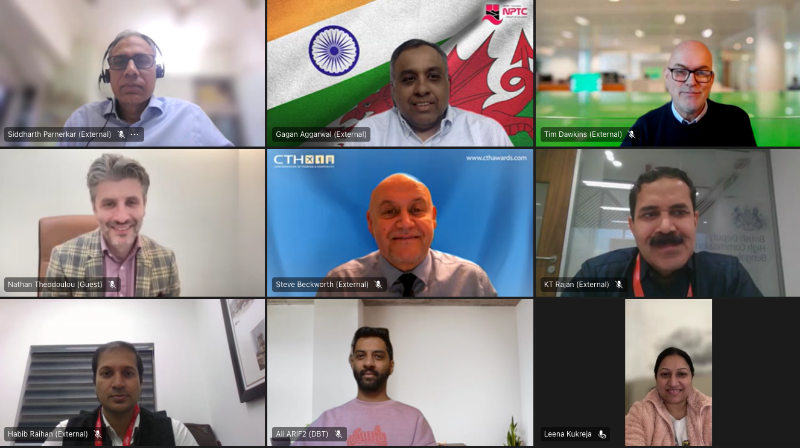India Skills: Just like so many other countries, India grapples with developing a skills workforce. India is not alone in its quest to close the gap between industrial demands and skills and training provision.
On Wednesday 6th December 2023, in conjunction with the Department for Business and Trade, the UK High Commission in India and the Government of India, the UK Skills Partnership delivered an Online UK-India Skills Showcase and Dialogue.
In an era defined by rapid technological advancements and dynamic global markets, the collaboration between nations becomes imperative to address the evolving needs of industries. The webinar between the United Kingdom and India served as a significant milestone, delving into the current skilling priorities for industries in alignment with the National Education Policy 2020 (NEP 2020) in India. This cross-border dialogue aimed to foster a mutual understanding of the challenges and opportunities in skilling, laying the groundwork for a collaborative approach to meet the demands of the 21st-century workforce.
Understanding the National Education Policy 2020:
The National Education Policy 2020, introduced by the Government of India, envisions a holistic transformation of the education system to cater to the needs of the rapidly changing global landscape. One of the key pillars of NEP 2020 is a focus on skill development, aiming to make education more practical and industry-oriented. The policy emphasizes the integration of vocational education and hands-on learning experiences, preparing students to thrive in diverse professional environments.
Indian Skills: Exploring Skilling Priorities:
The UK-India webinar brought together government officials, skills experts, policymakers, and industry leaders to discuss and analyse the current skills priorities for industries and India’s skills. The presentations and discussions revolved around identifying skill gaps, understanding emerging trends, and formulating strategies to align educational curricula with industry requirements. The speakers highlighted the importance of fostering innovation, adaptability, and digital literacy to meet the evolving demands of various sectors.


